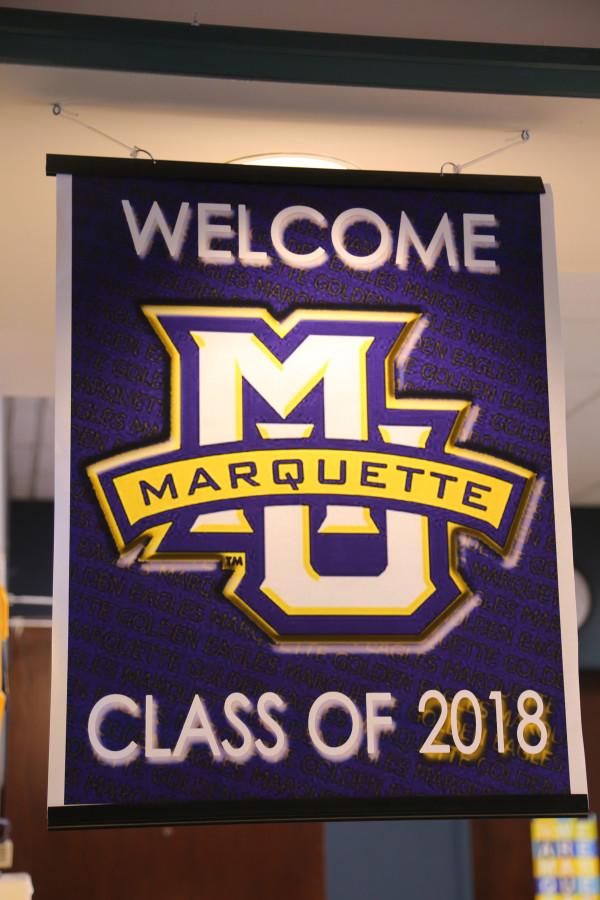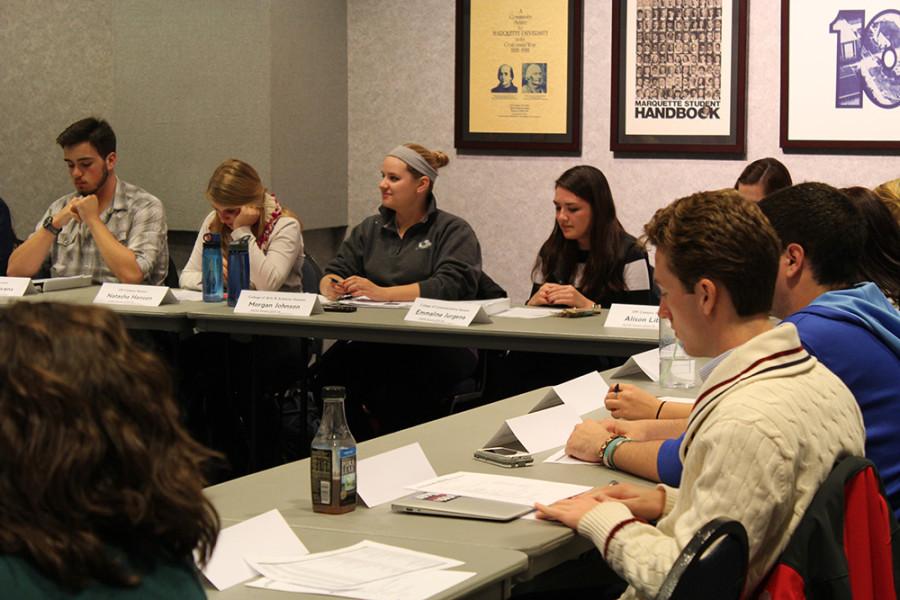Marquette Student Government Legislative Vice President Dan Brophy is working to encourage the university to cancel classes in future elections, a move the university did not make for Tuesday’s midterm election.
Millennials make up about 31 percent of the overall electorate but have the lowest turnout of any age group, according to Pew Research Center.
To encourage this younger generation to vote, many universities such as Clemson University and Columbia University have cancelled classes on Election Day.
“I think the most important reason students should have the day off to vote is because it sends a very strong message that voting is important,” Brophy said. “I think the university should be sending that message in a much stronger way than we are right now.”
Brophy said that when a university gives students a day off, it highlights things that the university finds important, such as canceling classes when a team excels in March Madness Tournament.
“If we’re going to say that we value civic engagement, and we value students voting, we should give students that one day to vote,” Brophy said.
Molly Brenner, a junior in the College of Arts & Sciences, said she believes it is important for the younger generation to vote in this election because they will be around the longest and these choices affect them greatly.
“We’re all in college and educated so it’s important that we voice our opinions,” Brenner said. “That’s the great thing about this country — we have the ability to vote and not a lot of other places can, so we should take advantage of that and go out and vote.”
Jessica Rich, a professor of political science who canceled her classes for Election Day, said she agrees that young people need to feel like their voices matter in a democracy.
“I think it’s good to give college students the day off to vote partly because I think students feel disaffected and disenfranchised,” Rich said. “And it’s a vicious cycle where politicians know that young people tend not to vote so they don’t listen to them as much.”
Many countries around the world, like France, Taiwan, Peru and Spain, hold elections on a Sunday to make voting accessible to more people, according to the Washington Post. Other countries make Election Day a national holiday, such as Singapore or South Korea.
“I think Election Day should be a national holiday in the U.S.,” Rich said. “If we want to improve the quality of democracy, that has to do with getting more people engaged in politics, and if you want to get people engaged in politics, setting up barriers to getting engaged is the opposite of what you should be doing.”
The university canceling classes would give students more time to go out and vote, Emily Shore, a junior in the College of Business Administration, said.
“A big excuse students have is that they don’t have enough time, so that would lessen the amount of excuses they have not to vote,” Shore said.
Brophy said many students have days filled with classes, meetings, homework, clubs and other responsibilities that make it difficult to prioritize voting.
“It’s important to remember that many students have packed days,” Brophy said. “So for a faculty member or other professional who can take off for three hours, it might be easy to say, ‘Why would students need a whole day?’ But for some students, when it takes maybe a hour or two to vote, that (time) makes a complete difference.”
College-aged students often lack the motivation to become politically active, so messages to reinforce the importance of voting are essential, Mary Claire Burkhardt, a junior in the College of Arts & Sciences, said.
“If classes were canceled or work was canceled, that would send the message that voting is important,” Burkhardt said. “Education is also important, but voting affects education and everything you do. If Marquette canceled classes and sent out a message explaining why it’s important, that would be really helpful.”
Brophy said MUSG has not yet had discussions with administrators in the academic sectors about changing the schedule, but hopes to begin this process after the election. He said he believes having this policy in place in the future is extremely important.
“There’s a lot of research that proves that the reason that students don’t vote is because college is really disruptive to voting,” Brophy said. “It’s a really complex process for people who are already going through kind of a weird time, which is college.”
Rich also said she agrees that Marquette canceling classes might encourage awareness of voting.
“I think if Marquette did that, Marquette would be seen as a leader in promoting democracy,” Rich said. “I think that there’s every reason for Marquette to do that. We are a leader in so many ways. We care about social justice so I think it’s in line with Marquette’s values.”




